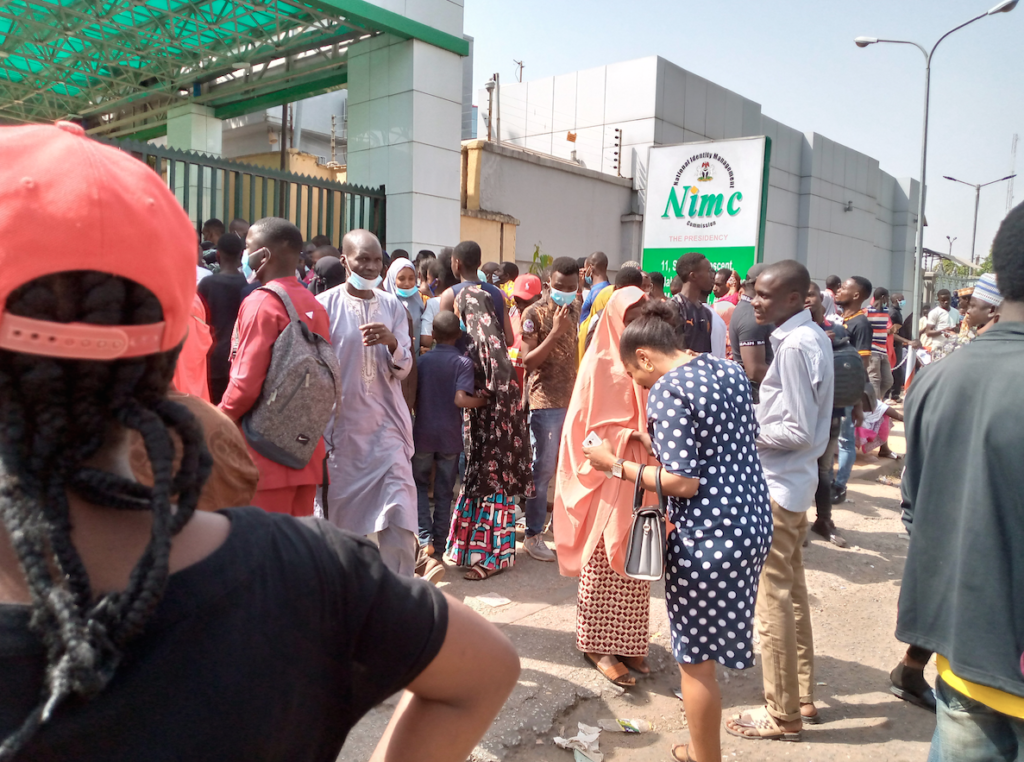A prominent data privacy lawyer and Director of Policy at the Data Privacy Lawyers Association (DPLAN), Barrister Oladipupo Ige, has criticized the National Identity Management Commission (NIMC) for implementing a flat ₦28,574 fee for the correction of date of birth (DOB) on the National Identification Number (NIN) database, arguing that the Commission’s pricing framework violates existing data rights laws.
In a statement issued during an interview on Monday, Ige stated that while NIMC may legally adjust service charges, it cannot lawfully impose fees on rectifications stemming from errors caused by the agency or its appointed data processors.
The lawyer’s position comes in response to NIMC’s May 10 announcement of a new fee structure covering all data modification services under its purview. Among the newly introduced rates, the cost for correcting date of birth on the NIN database was raised from ₦16,340 to ₦28,574—a hike of 75%.
Ige referenced Article 36, Section 4 of the 2025 General Application and Implementation Directive (GAID), which deals with the “Exercise of Right to Rectification.” The provision states that:
“Where data rectification is for the purpose of correcting an error made by a data controller or data processor in inputting the personal data of a data subject, the data subject shall not be required to pay…”
The article further emphasizes that individuals must be given a reasonable opportunity to verify personal data before it becomes part of any permanent or official record.
Citing this directive, Barrister Ige accused NIMC of unlawfully generalizing DOB correction charges, thereby penalizing Nigerians for mistakes they may not be responsible for.
“If the date of birth error was introduced by the citizen, then yes, the law allows for a fee. But if the mistake was due to NIMC or its agents, then any charge is illegal,” Ige insisted.
READ ALSO: NIMC hikes fees for NIN data modification, DOB correction now costs ₦28,574
“What the NIMC appears to be doing is applying a blanket fee without distinguishing between errors made by citizens and those made by data entry officers or agents,” he added.
Ige urged the Commission to issue a public clarification and develop a transparent mechanism that determines the source of an error before demanding payment. He stressed that failing to do so would constitute a breach of Nigerians’ data rectification rights and could invite legal challenges.
In its official release accompanying the new fee structure, NIMC justified the price changes as part of a broader strategy to increase revenue, align with inflation, and support its service expansion.
The Commission noted that the new price regime followed “consultation with all departments” and considered multiple national economic indicators.
Comparative analysis with fees charged by sister agencies, including the Nigeria Immigration Service and Federal Road Safety Corps
“We propose an upward review in the fees and charges for our product and services with a markup of at least 20% across board, with exceptions to certain services per their peculiarities,” NIMC said in its executive summary.
The revised pricing regime—especially the ₦28,574 DOB correction fee—is already triggering a wave of public concern and legal scrutiny, with stakeholders like Ige warning that such policies could erode public trust and violate fundamental rights under data protection laws.
Observers also question whether the NIMC’s commercial focus aligns with its statutory obligation to provide identity services in the public interest, especially amid Nigeria’s worsening cost-of-living crisis.
As the policy takes effect, analysts say the Commission may come under increased legal and civic pressure to review or rescind the controversial fee, particularly if further legal interpretations uphold that such charges violate citizens’ rights.
Civil society groups and digital rights advocates are reportedly preparing to engage NIMC on the issue. Meanwhile, legal experts urge affected citizens to demand an investigation into the cause of any error before consenting to pay the elevated correction fee

 Entertainment1 week ago
Entertainment1 week ago
 Entertainment4 days ago
Entertainment4 days ago
 Comments and Issues1 week ago
Comments and Issues1 week ago
 Comments and Issues1 week ago
Comments and Issues1 week ago
 Business1 week ago
Business1 week ago
 Comments and Issues1 week ago
Comments and Issues1 week ago
 Health6 days ago
Health6 days ago
 Football6 days ago
Football6 days ago

